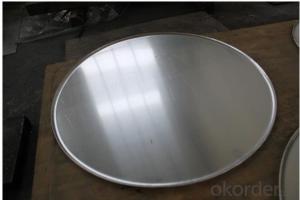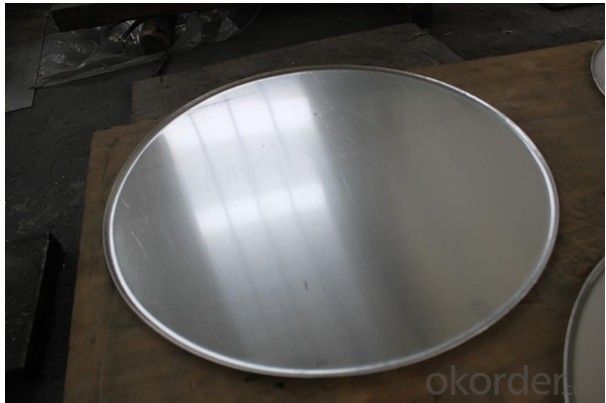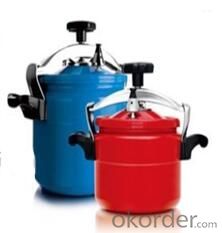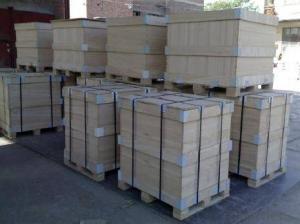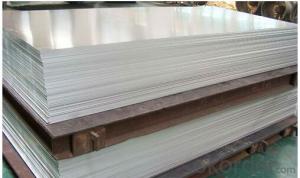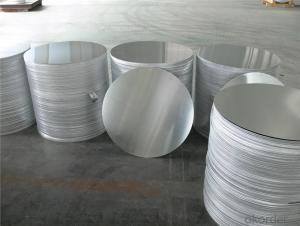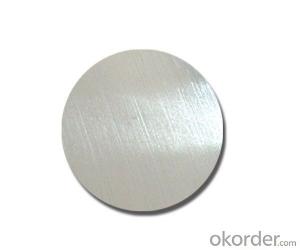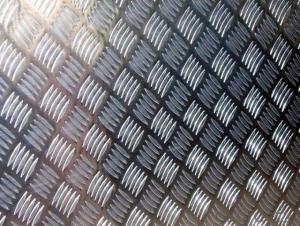4 X 8 Powder Coated Smooth Surface 8011 Aluminum Circle Sheet
- Loading Port:
- Tianjin
- Payment Terms:
- TT OR LC
- Min Order Qty:
- 5 m.t.
- Supply Capability:
- 600 m.t./month
OKorder Service Pledge
OKorder Financial Service
You Might Also Like
Specification
Smooth Surface 8011 Aluminum Circle Sheet
Professional aluminum product manufacturer
We have our own plant , Laboratory and engineer
Over 100 models can totaly satisfy your request
As powerful and stronger factory, our aluminum quality is very stable and reliable
2 years warranty period
Specifications:
Thickness:0.5mm-6.0mm
Width:100mm-900mm
Surface:Bright & smooth surface, not defects like white rust, oil patch.
Product Information :
Product | Aluminum Circle |
Alloy | 1050 1060 1070 1100 1200 |
Temper | O, H12, H14, H18 and H24... |
Thickness | 0.5mm-6.0mm |
Diameter | 100mm-900mm |
Lead Time | Within 30-45 days after receiving deposit |
Packing | Standard Exporting wooden pallets or based on customer requirement |
Material | Using high-tech machinery utilizing premium grade Aluminium Coil. Customized according to the needs and demands of the clients these can be availed at different technical specifications. |
Surface: | Bright & smooth surface, free from defects like white rust, oil patch, edge damage. |
Application | Aluminium Circles are used in Reflective Sign Boards, Road Furniture, Utensils, Sand witch Bottom, Cooker, Non-Stick etc. |
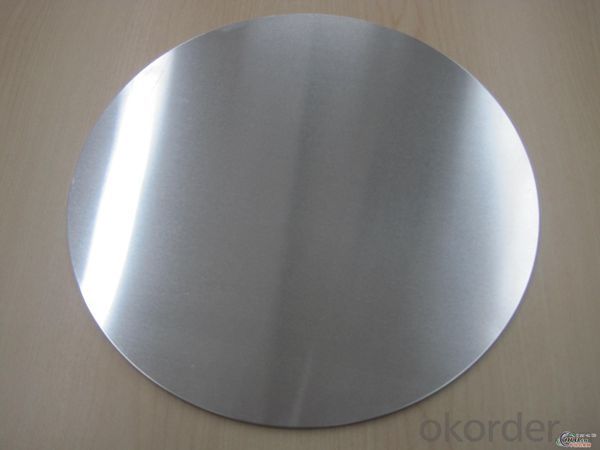
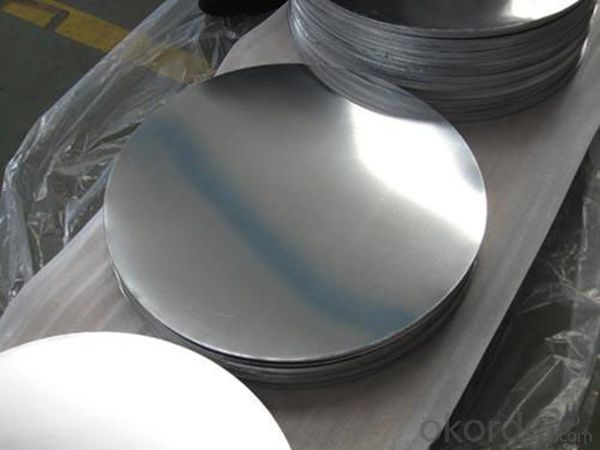
- Q: What specific considerations or precautions should be taken into account when using aluminum sheets in environments with high moisture levels?
- <p>When using aluminum sheets in damp or wet environments, it's important to consider the potential for corrosion. While aluminum is generally corrosion-resistant due to its protective oxide layer, it can still be susceptible to certain types of corrosion in the presence of moisture, especially if the environment is acidic or saline. It's crucial to use high-quality aluminum alloys that are designed for such conditions. Additionally, proper surface treatment such as anodizing or applying protective coatings can enhance resistance to corrosion. Regular inspections and maintenance are also recommended to check for signs of corrosion and to address any issues promptly.</p>
- Q: Are aluminum sheets suitable for electrical busbars?
- Yes, aluminum sheets are suitable for electrical busbars. Aluminum is a lightweight and highly conductive material that offers good electrical and thermal conductivity. It is widely used in electrical applications, including busbars, due to its excellent electrical properties and cost-effectiveness.
- Q: Are the aluminum sheets suitable for manufacturing electronic enclosures?
- Yes, aluminum sheets are suitable for manufacturing electronic enclosures. Aluminum is a popular choice for electronic enclosures due to its excellent combination of strength, durability, and lightweight properties. It offers good electrical conductivity, making it suitable for dissipating heat generated by electronic components. Additionally, aluminum sheets can be easily shaped, formed, and machined to meet the specific requirements of electronic enclosures, allowing for customization and flexibility in design. Its corrosion resistance properties also make it suitable for protecting electronic devices from environmental factors. Overall, aluminum sheets provide an ideal material solution for manufacturing electronic enclosures.
- Q: Can the aluminum sheets be used for manufacturing power transmission lines?
- Power transmission lines can be manufactured using aluminum sheets. Aluminum possesses several properties that make it suitable for this purpose. To begin with, aluminum is a lightweight material, making it more convenient to handle and transport compared to metals like copper. This can lead to reduced installation costs and increased efficiency of the power transmission lines. Additionally, aluminum exhibits good electrical conductivity, although it may not be as conductive as copper. However, due to its lighter weight, aluminum can still achieve similar electrical performance to copper while using less material. This can result in cost savings and reduced energy losses in the transmission lines. Moreover, aluminum demonstrates excellent resistance to corrosion, which is vital for power transmission lines that are frequently exposed to different weather conditions and environmental factors. Aluminum can endure harsh conditions and maintain its structural integrity over time, ensuring the reliability and longevity of the power transmission infrastructure. To conclude, aluminum sheets can indeed be utilized for the manufacturing of power transmission lines due to their lightweight nature, favorable electrical conductivity, and outstanding corrosion resistance.
- Q: What are the different methods of surface treatment for aluminum sheets?
- Aluminum sheets can undergo various surface treatment methods, each with its own purpose and desired outcome. Popular methods include anodizing, chromate conversion coating, painting, and powder coating. Anodizing is commonly used to enhance the corrosion resistance and durability of aluminum sheets. This involves immersing the sheets in an electrolytic bath and applying an electric current to create a controlled oxide layer on the surface. The result is a protective and decorative coating that can be colored or sealed. Chromate conversion coating, also known as chemical conversion coating or chromating, applies a thin layer of chromate to the aluminum sheets. This method provides excellent corrosion resistance and improves paint adhesion. The coatings can be clear or have a yellowish or iridescent appearance. Painting is a widely used method to protect aluminum sheets and improve their visual appeal. Sheets are typically pre-treated with a primer to enhance adhesion, followed by the application of a topcoat for protection and color. Painted aluminum sheets come in a wide range of colors and finishes, suitable for various applications. Powder coating is an environmentally friendly and durable surface treatment for aluminum sheets. It involves electrostatically applying a dry powder onto the sheets, which is then cured in an oven. The powder melts and fuses to form a tough and attractive coating. Powder coating offers excellent resistance to corrosion, chemicals, and UV radiation. In addition to these methods, other techniques like polishing, buffing, and mechanical finishes can be employed to achieve specific desired appearances or surface qualities. Ultimately, the choice of surface treatment method for aluminum sheets depends on factors such as desired corrosion resistance, aesthetic requirements, environmental considerations, and the intended application of the sheets.
- Q: What is the hardness of aluminum sheets?
- The hardness of aluminum sheets may differ based on the particular alloy and temper it has undergone processing to. Aluminum alloys are usually evaluated using the Rockwell hardness scale or the Brinell hardness scale. Typically, pure aluminum exhibits a low hardness rating, approximately 20-30 on the Rockwell B scale, whereas certain aluminum alloys can achieve a hardness level of up to 70 on the Rockwell C scale. However, it is essential to recognize that the hardness of aluminum can be further adjusted through different heat treatment methods, like annealing or tempering, which can have a significant effect on its ultimate hardness.
- Q: Can 101 aluminum sheets be painted or coated?
- Yes, 101 aluminum sheets can be painted or coated.
- Q: This question asks for a list of various fasteners that are commonly used in the installation process of aluminum sheets.
- <p>There are several types of fasteners used for installing aluminum sheets, including: 1. Self-tapping screws, which create their own threads in the material. 2. Rivets, which join two pieces of material by compressing them together. 3. Pop rivets, a type of rivet that can be installed using a handheld tool. 4. Structural adhesives, which bond the sheets together without visible fasteners. 5. Welding, although not a fastener, it's a method used to join aluminum sheets permanently. 6. Mechanical fasteners like bolts and nuts, which are tightened to secure the sheets. 7. Clips and clamps, used for temporary or decorative installations. Each type has its own advantages and is chosen based on the specific requirements of the installation, such as load-bearing needs, aesthetic considerations, and the environment in which the aluminum sheets will be used.</p>
- Q: I think I remember that this is true of aluminum foil. When it's charged, it'll push away from itself, I know. Why do magnets have seemingly no effect?
- Aluminum is a non-ferrous metal. Ferrous metals contain Iron which is magnetic. When aluminum has a charge applied to it, it acts like any conductor would, the charge has magnetic properties. the aluminum is still not magnetic, but it acts like a magnet due to the charge.
- Q: Are aluminum sheets suitable for boat building?
- Yes, aluminum sheets are widely used in boat building due to their lightweight, durability, corrosion resistance, and ease of maintenance.
Send your message to us
4 X 8 Powder Coated Smooth Surface 8011 Aluminum Circle Sheet
- Loading Port:
- Tianjin
- Payment Terms:
- TT OR LC
- Min Order Qty:
- 5 m.t.
- Supply Capability:
- 600 m.t./month
OKorder Service Pledge
OKorder Financial Service
Similar products
Hot products
Hot Searches
Related keywords
